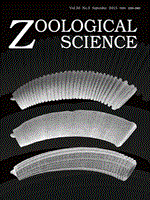Ca2+ plays important roles in animal development and behavior. Various Ca2+ transients during development have been reported in non-neuronal tissues, mainly by using synthesized calcium indicators. Here we used GCaMP3, a genetically encoded calcium indicator, to monitor stochastic Ca2+ waves, in zebrafish embryos. To express GCaMP3 systemically throughout the body, its mRNA was injected into fertilized eggs. In the neuroepithelium of developing anterior brain and retina at 12–20 hours post-fertilization, we found spontaneously occurring stochastic Ca2+ waves. Each Ca2+ wave typically appeared in a randomly distributed spot, spread for 5–60 sec to form an area whose position and size varied each time with a diameter ranging from 10 to 160 µm, and then shrank and decreased to 50% brightness in 4–67 sec. A precise examination of the cellular distribution using Nipkow disk multibeam confocal laser scanning indicated that the Ca2+ waves spread cell by cell. 2-APB, IP3-receptor inhibitor, but not carbenoxolone, a gap junction blocker, inhibit these Ca2+ waves. Stronger fluorescence was found in the cytoplasm compared to the nuclei in the resting cells, and localized fluorescence was observed at the spindle poles in dividing cells. Ca2+ waves also spread through the dividing cells. Our results reveal a novel type of cell-to-cell communication through the neuroepithelium in the developing zebrafish brain and retina, distinct from communication through neuron-neuron circuits. Our findings also indicated that GCaMP3 was useful for monitoring both stochastic and behavior-related Ca2+ waves in the nervous system and skeletal muscles in zebrafish embryos.
How to translate text using browser tools
1 September 2013
Stochastic Ca2+ Waves that Propagate Through the Neuroepithelium in Limited Distances of the Brain and Retina Imaged with GCaMP3 in Zebrafish Embryos
Shin-ichi Okamoto,
Masashi Nakagawa,
Kohei Hatta
ACCESS THE FULL ARTICLE

Zoological Science
Vol. 30 • No. 9
September 2013
Vol. 30 • No. 9
September 2013
Ca2+transient
Calmodulin
cell division
IP3-receptor
Skeletal muscle
spinal neuron




